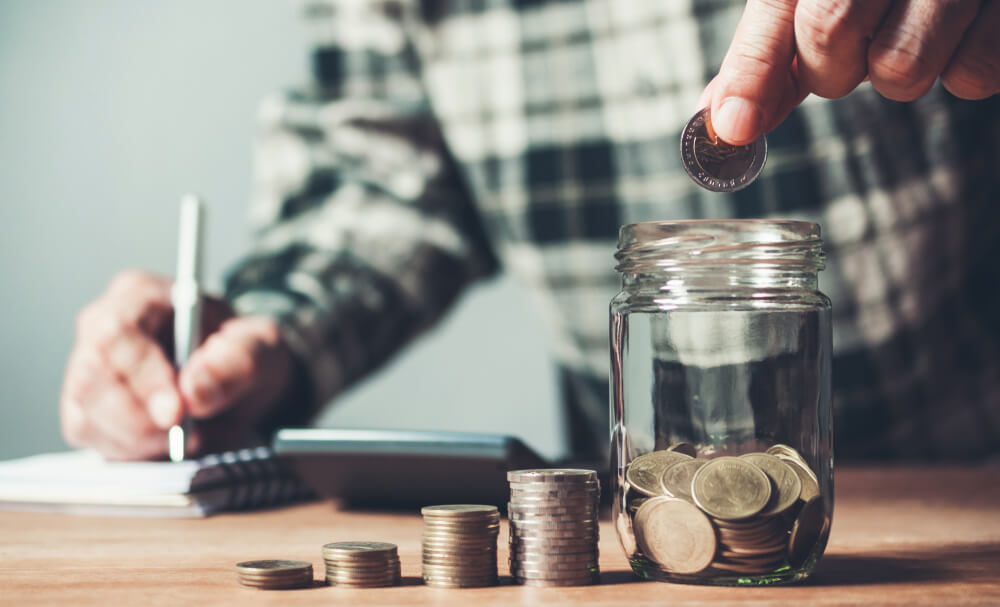Wondering whether it is better to save or to pay off your debt? Saving money vs. paying off debt is a big point of contention among financial experts. While most generally agree that being saddled with debt isn't good, the question of whether saving and investing should be prioritized over paying off debt doesn’t have a unanimous answer.
The thing is, either way, you’ll be losing money: whether it’s not investing and making retirement contributions (you might be losing a rather large amount of retirement nest egg, especially with projected investment returns) or prolonging the debt payoff (you might be signing up to pay thousands of dollars in interest down the line if you stick to only paying the minimums).
So, is it better to save or pay off debt? In the end, you must decide what is better for yourself by sitting down, going over your bank statements, crunching numbers, and figuring out what you’re comfortable doing.
But if you’re willing to take advice from us – we’d advise you to focus on paying off debt for several reasons.
1. Debt Impedes Your Financial Stability
In our opinion, when considering the question of debt payoff versus saving money, you should look at it from the point of potential financial stability.
Having a financial obligation like debt will no doubt impede your attempts to improve your financial stability, because 1) it will keep sucking the money from your wallet; 2) if you’re suddenly left without income and unable to pay, it will seriously damage your credit card score.
2. Debt Influences Your Ability to Take Risks
In the long run, it will keep influencing not only your money decisions specifically, but your decisions about other avenues of life as well: you aren’t likely to be able to take risks like quitting your job or taking a less secured job (even if it offers better prospects potentially if the venture is successful).
This is exactly what is happening to many Americans right now: we’re living paycheck to paycheck, unable to take risks, and potentially improving our quality of life specifically because debt keeps taking a substantial chunk of our paycheck.
Paying debt off allows you to take more risk with your financial decisions because the risk of being put in a money hole you won’t be able to climb out of is far lower than when a third of your paycheck must go to loans.
3. Debt Influences Other Avenues of Life
Millennials are the slowest generation to buy houses, get married, and start families. Gen Z is projected to likely follow in their steps instead of Baby Boomers. And the main reason? Debt.
More specifically the majority blame student loans, but credit card debt isn’t far behind. Being saddled with thousands of dollars of debt, with monthly minimum payments often barely covering interest often already feels to them like they’ve got a mortgage – and they’re not willing to sign up for another one.
The same goes for relationships and kids – millennials have figured out that families are expensive, despite all the tax breaks.
On the other hand, those who’ve paid their loans off are usually much more interested in planning for the financial future, and that future is far more likely to include family, than their debt-straddled peers’.

So Do I Not Save At All?
Absolutely not. Before figuring out your debt payoff schedule, the first thing you must do is set up an emergency fund – this is something all financial gurus agree on, no matter their stance on the subject of debt payoff.
Most think that having your fund comfortably cover 3 to 6 months’ worth of expenses is ideal, but if you’re looking to start your debt payoff sooner you should still save at least 1 month’s worth of expenses.
Without an emergency fund, you’re not likely to be able to deal with financial problems when they arise – and that will only put you further into debt.
What Do I Do If I Have An Emergency And No Savings?
You will likely need to consider taking out a short-term fast loan, like a payday loan.
Why A Payday Loan?
Payday loans are easy and quick. We can accommodate any type of income and it’s not influenced by credit scores, so you can qualify even if your credit is bad or outright nonexistent.
How Do I Take Out A Payday Loan?
You can apply for payday loans by going to Nevada Title and Payday Loans Inc. homepage and filling out the form. You’ll be contacted by a store representative who’ll set up a meeting with you.
You’ll need to bring your valid ID (you must be over 18), your most recent pay stub, and a blank check from an active checking account in your name to the meeting. The representative will verify your documents and decide if you qualify. If you’re approved you’ll get the cash the same day.
Note: The content provided in this article is only for informational purposes, and you should contact your financial advisor about your specific financial situation.







